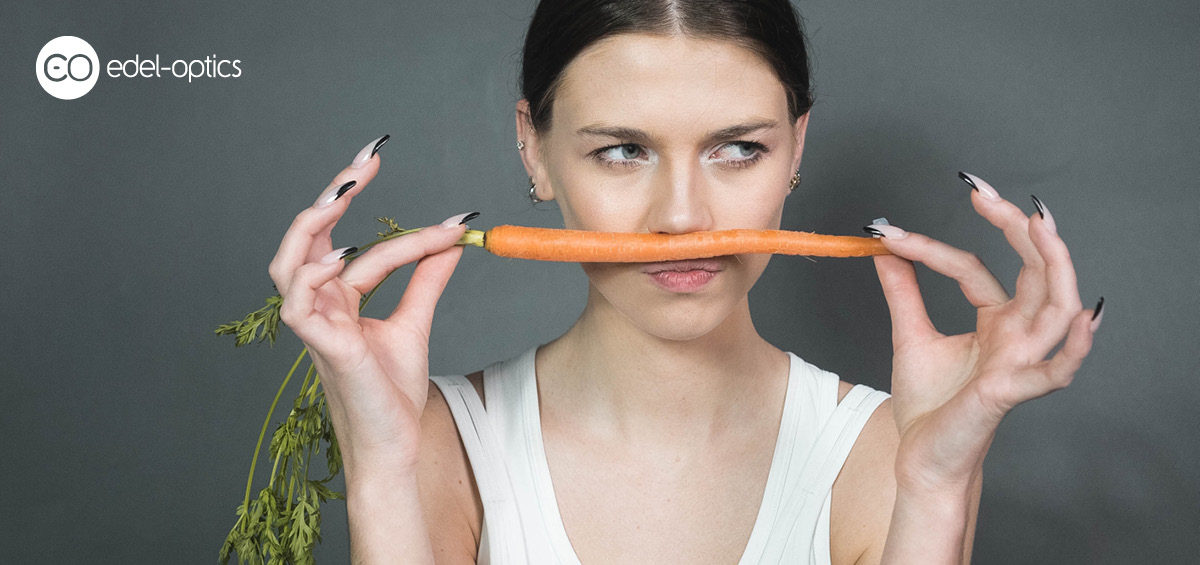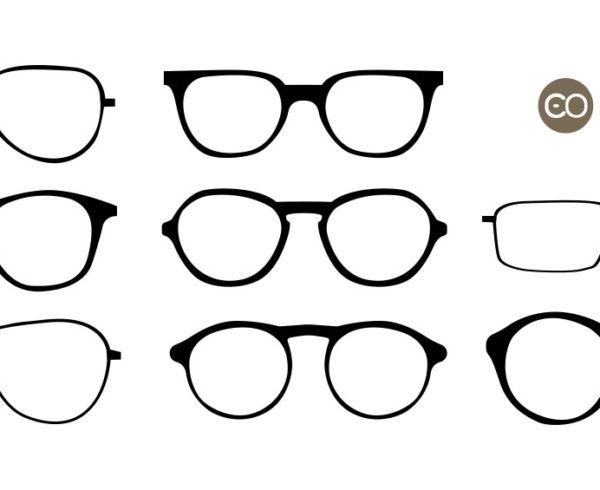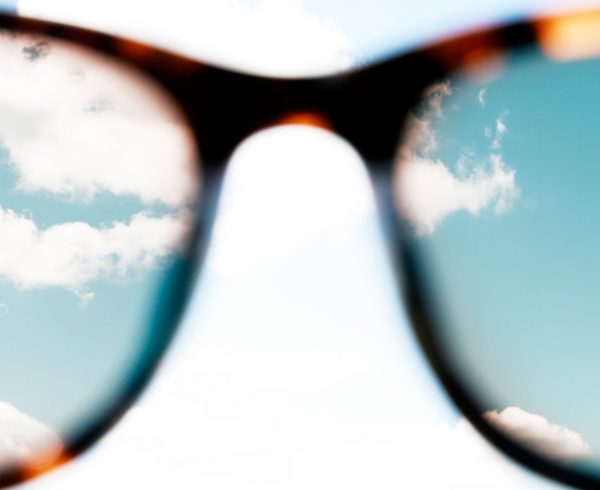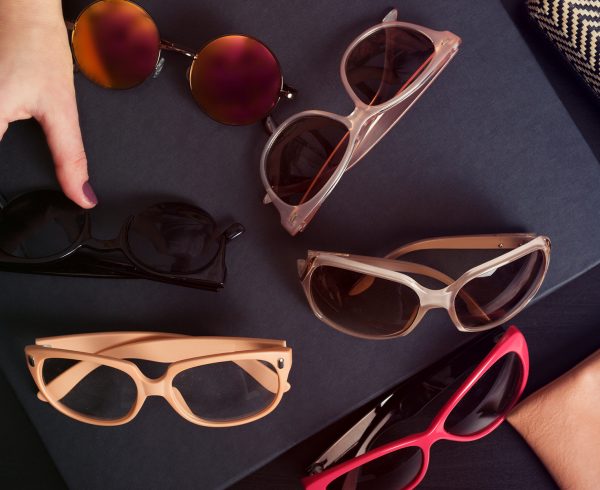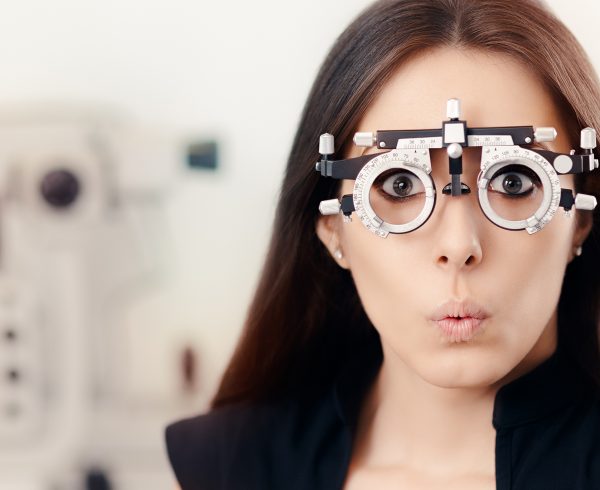Does eating carrots improve your eyesight? Is reading in the dark bad for your eyes? These are just some of the widespread preconceptions about how we should look after our eyes. But are they true? We check the 7 most widespread myths about eyes.
Fact Check – Eye Myths
7 Myths – 7 Answers
Myth 1: The wrong prescription will damage your eyes.
FALSE
Glasses that are not ideally fitted may result in blurred vision or tired eyes, but this has no permanent effect on the eyes and their vision. However, it goes without saying that sharp, clear vision is helpful in life, which is why having the correct prescription is obviously important. And beware: in children, having the wrong prescription may well have an effect on the eyes, because a child’s vision has to develop gradually. Here, properly fitted glasses can even support development of optimal eye performance.
Myth 2: Eating carrots improves your eyesight.
TRUE
Eating carrots regularly is actually good for your eyes. But if you think you can get rid of your glasses by eating lots of carrots, you’re wrong. Carrot consumption only supports vision through certain vitamins and nutrients. Carrots contain valuable beta-carotene (vitamin A), which the retina needs to work properly. Equally good for the eyes, however, are foods like kale, brussels sprouts, or spinach. The consequences of vitamin A deficiency show how important vitamin A is for the eyes. This is still a common cause of blindness in children in developing countries.

Myth 3: Reading in the dark damages the eyes.
FALSE
“You’d better sit down at your desk to read and turn on the light,” my parents used to say to me when I wanted to retreat under the covers with my favourite book. In fact, to date there is no evidence of permanent damage to the eyes from reading in poor light. However, the eyes are put under more strain as a result. Straining causes the eyes to tire more quickly and headaches can occur. But this does not make you short-sighted.
Myth 4: People who wear glasses are especially smart.
FALSE (unfortunately)
Wearing glasses apparently makes you look particularly smart to many people. While the statement is a nice compliment, it still doesn’t apply to every person who wears glasses. But there is a connection: those who are smart usually read more than those who are less interested in education. However, reading, especially on the computer, can have a negative effect on the eyes, which eventually leads to the need for glasses. That’s why for many glasses are a fashion item (without prescription) to appear “smarter”.
Myth 5: Glasses make your eyes lazy.
FALSE
“Wearing glasses makes your eyes worse” is we’ve all heard from time to time. But do your eyes really get worse when you wear glasses that reduce strain on the eyes? No, glasses do not affect a person’s actual vision. Neither do they make the eyes worse nor better, even though people with glasses sometimes feel that way when they take their glasses off for a moment.

Myth 6: Old people need glasses most of all.
TRUE
Older people actually wear glasses more often than younger people. The reason for this is natural presbyopia, which affects most of us sooner or later. However, the development of defective vision is not necessarily related to age; even babies can need glasses. Presbyopia is not a disease, but a natural development. The lens of our eye is responsible for sharp vision at different distances. This is flexible and can curve itself according to wear it is focusing (accommodation). As a result, the light in the eye is refracted to different degrees, and the eye sees near or far sharply. With increasing age, the lens becomes less and less flexible, which means that the eye’s ability to accommodate also decreases.
Myth 7: Watching too much TV will give you square eyes.
FALSE
How often did we have to listen to this saying as children? Of course, even if you watch TV for days on end, it’s not possible to change the shape of your eyes. It was already clear to us at the time that this saying was more to keep us children from watching a lot of television. But our parents told us this old wives’ tale for a reason. In children, the visual system is developing and therefore needs daily training. Lots of outdoor exercise trains our eyes. When watching television, on the other hand, the eye is trained less, as it is always focused on only one point. This can lead to defective vision.
 English
English Deutsch
Deutsch Dansk
Dansk Svenska
Svenska Nederlands
Nederlands Français
Français polski
polski Österreich
Österreich Schweiz
Schweiz